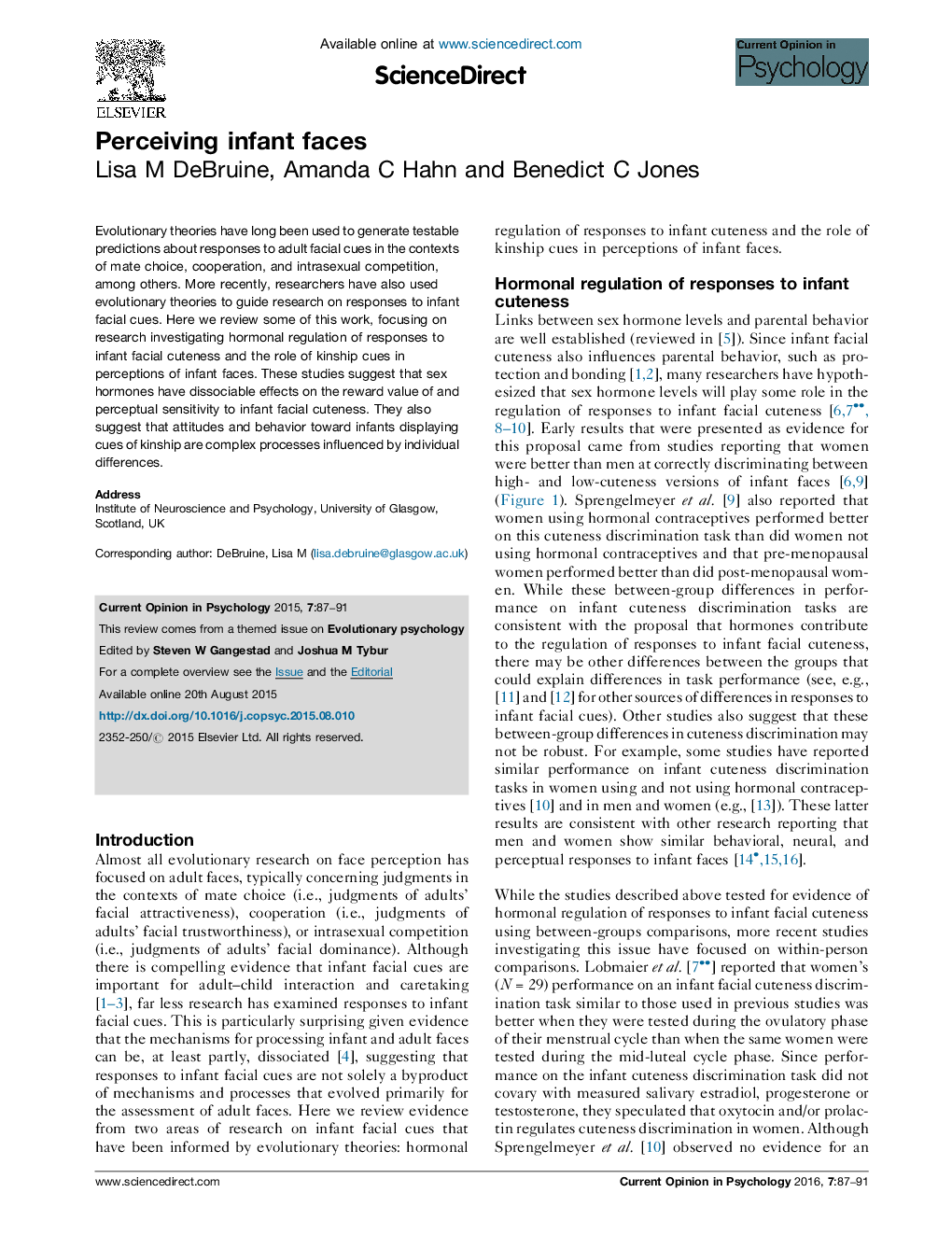| کد مقاله | کد نشریه | سال انتشار | مقاله انگلیسی | نسخه تمام متن |
|---|---|---|---|---|
| 879361 | 1471322 | 2016 | 5 صفحه PDF | دانلود رایگان |
• Evolutionary studies of faces typically analyze adult targets.
• Infant facial cues are important for adult–child interactions.
• We discuss recent research on hormonal regulation of responses to infant facial cues.
• We also discuss the role of kinship cues in perceptions of infant faces.
Evolutionary theories have long been used to generate testable predictions about responses to adult facial cues in the contexts of mate choice, cooperation, and intrasexual competition, among others. More recently, researchers have also used evolutionary theories to guide research on responses to infant facial cues. Here we review some of this work, focusing on research investigating hormonal regulation of responses to infant facial cuteness and the role of kinship cues in perceptions of infant faces. These studies suggest that sex hormones have dissociable effects on the reward value of and perceptual sensitivity to infant facial cuteness. They also suggest that attitudes and behavior toward infants displaying cues of kinship are complex processes influenced by individual differences.
Journal: Current Opinion in Psychology - Volume 7, February 2016, Pages 87–91
